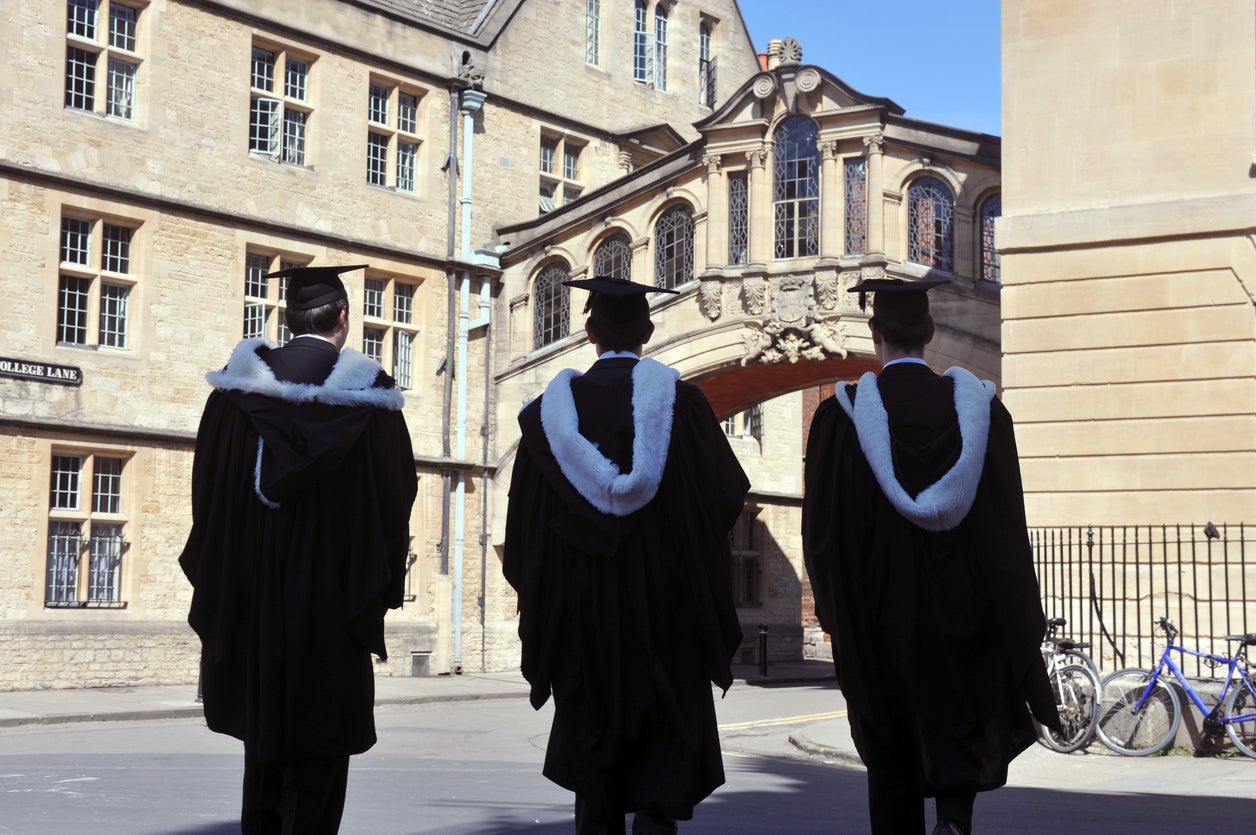Three-quarters of graduates will never pay off their student loans, finds report
Students from low-income families graduate with the highest debt levels of more than £57,000

Most graduates will still be paying off student loans into their 50s, and three-quarters will never clear the debt, a new probe has found.
The Institute for Fiscal Studies (IFS) report said that initial gains made by poorer students in the controversial 2012 shake-up of the tuition fees system have been more than wiped out by subsequent changes.
The reforms brought in by the then Coalition government originally saw the lowest earning third of graduates better off by £1,500, but replacing maintenance grants with loans sent debt rates soaring.
The changes resulted in students from low-income families graduating with the highest debt levels of more than £57,000.
Expected repayments from the lowest-earning third of graduates have increased by about 30 per cent since 2012, while repayments by the richest third rose by less than 10 per cent.
“The combination of high fees and large maintenance loans contributes to English graduates having the highest student debts in the developed world,” the report states.
The probe said that interest rates on student debt were “very high” at up to 3 per cent above inflation.
The average student who borrows £45,000 ends up paying another £5,800 in interest, while higher earners may have to fork out £40,000 in interest repayments, the IFS found.
“There is a risk that better-off parents will pay fees up front, especially if they think their offspring will be high earners. This would increase the cost to government in the long run,” the study said.
The IFS found that low-cost arts and humanities subjects got much bigger increases in funding, 47 per cent, than high-cost science and engineering subjects, 6 per cent, between 2011 and 2017.
The report said: “Incentives for universities to provide high-quality courses in return for the money they receive are surprisingly limited.”

Changes to the system reduced annual government borrowing in the short run by nearly £6bn, and the financing of undergraduate education adds less than £1bn a year to public spending, the report said.
The moves have cut the long term cost to the taxpayer of higher education by around £3bn a year.
“This long-run saving is lower because outlay on student loans is not included in measures of public spending, and 31 per cent of the value of loans is not expected to be repaid,” the report said.
University funding has increased by about 25 per cent per student since 2011, primarily funded by richer graduates, and institutions now receive an average of £28,000 per student per degree.

The report stated: “Reducing tuition fees or bringing back maintenance grants would have the advantage of allowing government to target specific students or courses that have wider benefits to society. This would, however, significantly increase deficit spending and lead to a smaller, but still considerable, increase in the long-run government contribution.”
Jack Britton, an author of the report, said: “Recent policy changes have increased university funding and reduced long-term government spending on higher education while substantially increasing payments by graduates, especially high-earning graduates.
“There is probably not much further to go down this route, but proposals for reducing student fees tend to hit the public finances while benefiting high earners the most.”
Colleague Chris Belfield said: “Interest rates on student loans reached up to 6.1 per cent in March 2017 and are very high compared with current market rates. Combined with high levels of debt, this increases average debt on graduation by £5,800. There is no impact on the repayments of the lowest earners, but the highest earners can expect to repay up to £40,000 in interest payments.”
The IFS’s Laura van der Erve, said: “Universities are undoubtedly better off under the current system than they were before the 2012 reforms. However, their incentives have shifted towards providing low-cost subjects.”
Press Association
Join our commenting forum
Join thought-provoking conversations, follow other Independent readers and see their replies
Comments
Bookmark popover
Removed from bookmarks